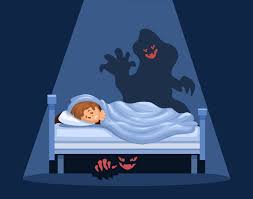There are always some ways to Enhance Sleep Quality and Reduce Exhaustion. Combating exhaustion and sleeplessness involves lifestyle changes, stress management, and medical intervention. Here are some strategies to help improve sleep quality and reduce fatigue:
1. Establish a Sleep Routine:
- Consistent Schedule: Go to bed and wake up at the same time every day, even on weekends. This helps regulate your body’s internal clock. And help with feeling exhausted.
- Pre-Sleep Routine: Develop a calming routine before sleep. Examples include reading, taking a warm bath, or practicing relaxation exercises like deep breathing or meditation. This signals your body that it’s time to wind down.
2. Optimize Your Sleep Environment:
- Comfortable Bedding: Invest in a comfortable mattress and pillows that support your sleep posture.
- Cool, Dark, and Quiet: Keep your bedroom cool, dark, and quiet. Consider using blackout curtains, earplugs, or a white noise machine if needed.
- Limit Screen Time: Reduce screen exposure (phones, tablets, computers, and TVs) at least an hour before bed. Screens emit blue light that can interfere with the production of melatonin, the hormone that regulates sleep.
3. Manage Stress and Anxiety:
- Relaxation Techniques: Incorporate practices such as yoga, mindfulness, or progressive muscle relaxation into your daily routine. These can help manage stress and anxiety. Stress and anxiety can interfere with sleep.
- Journaling: Writing down your thoughts and worries before bed can help clear your mind and reduce nighttime anxiety.
- Cognitive Behavioral Therapy (CBT): If anxiety or chronic stress is significantly impacting your sleep, consider seeking help from a therapist. Find a specialist in CBT for insomnia.
4. Healthy Lifestyle Habits:
- Regular Exercise: Engage in regular physical activity, but avoid vigorous exercise within 2 hours of bedtime. Exercise can help reduce stress and improve sleep quality.
- Balanced Diet: Avoid heavy meals, caffeine, and alcohol close to bedtime. These can disrupt sleep or cause discomfort, making it harder to fall asleep.
- Stay Hydrated: While it’s important to stay hydrated, try to limit fluid intake a few hours before bed. This can help avoid waking up for bathroom trips.
5. Limit Naps:
- Short Naps: If you need to nap during the day, keep it short—around 20 to 30 minutes. Long naps or napping late in the day can interfere with nighttime sleep.
6. Natural Remedies:
- Herbal Teas: Chamomile tea, Valerian root, or lavender tea can have calming effects and help with sleep.
- Melatonin Supplements: For short-term use, melatonin supplements can help regulate sleep patterns, especially if your sleep cycle is disrupted (e.g., jet lag or shift work).
7. Consider Professional Help:

- Consult a Doctor: If you have chronic insomnia or severe fatigue, consult a healthcare provider. These issues do not improve with lifestyle changes. Conditions like sleep apnea, restless legs syndrome, or thyroid issues can contribute to sleep problems and may require medical treatment.
- Sleep Study: If sleep disorders are suspected, your doctor may recommend a sleep study. This study helps diagnose underlying conditions. These conditions could be impacting your sleep.
8. Mind Your Mental Health for Sleep Quality:
- Treat Underlying Conditions: Conditions like depression and anxiety often affect sleep. Addressing these with therapy or medication can improve sleep quality.
- Social Support: Sometimes, talking to friends, family, or a counselor about your stressors can alleviate anxiety that interferes with sleep.
9. Mindfulness and Relaxation Apps:
- Sleep and Meditation Apps: Many apps are designed to guide you through meditation. They also offer breathing exercises and sleep stories that can help you relax and fall asleep more easily.
10. Limit Stimulants:

- Reduce Caffeine: Gradually cut back on caffeine intake, especially in the afternoon and evening. Caffeine can stay in your system for several hours.
- Avoid Nicotine: Nicotine is also a stimulant that can interfere with sleep.
11. Light Exposure:
- Morning Sunlight: Get exposure to natural light in the morning to help regulate your circadian rhythm.
- Dim Lights at Night: In the evening, dim your lights. This will signal to your body that it’s time to wind down.
Implementing these strategies can improve your sleep quality and reduce exhaustion over time. If your sleeplessness persists, seeking professional advice to address any underlying health issues is important.
This post is for fun chatting and not medical advice. For medical advice, see your Doctor.
I get a small commission on the products I recommend, but it does not affect the price you pay. Thank you for your support

